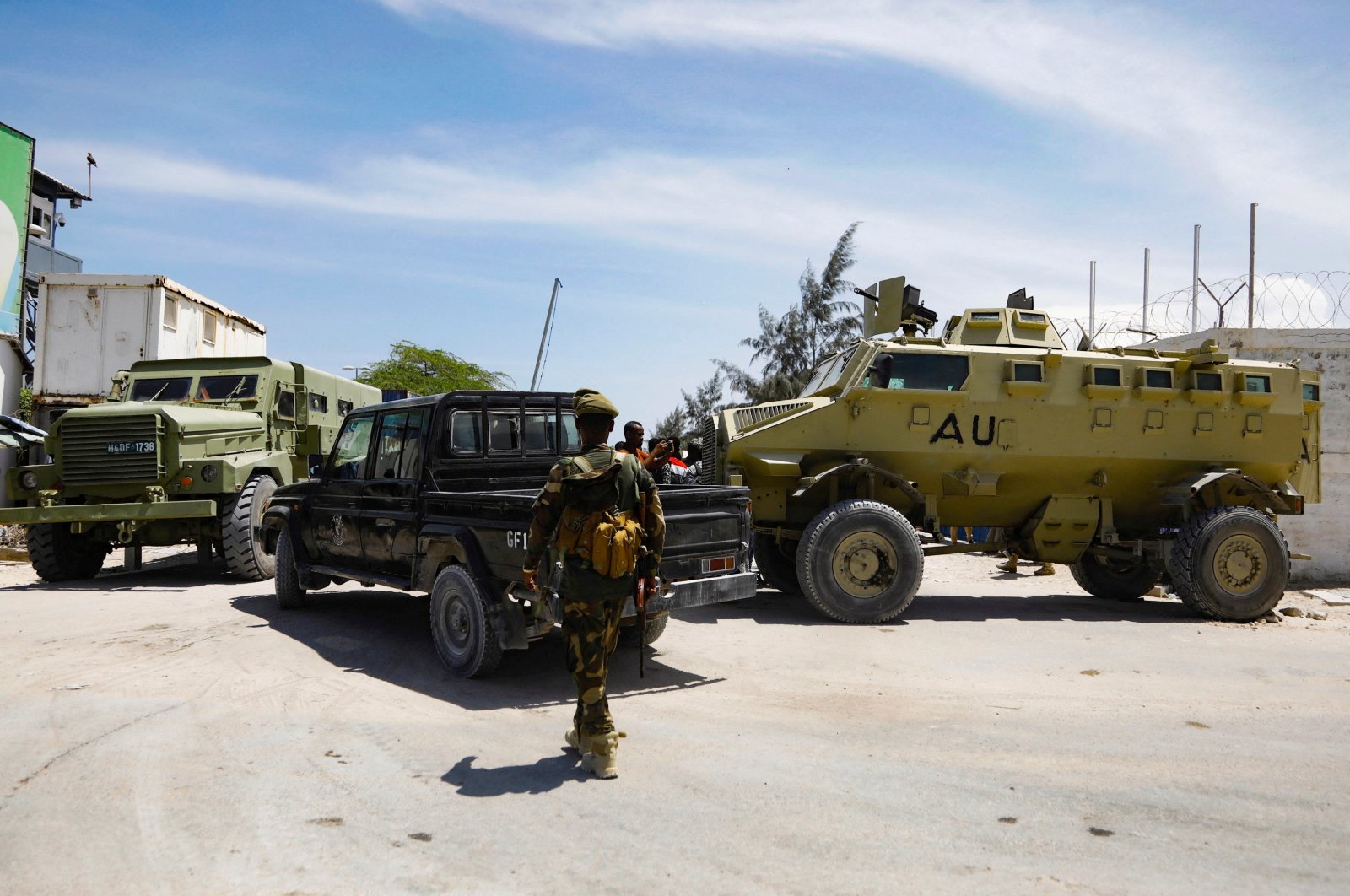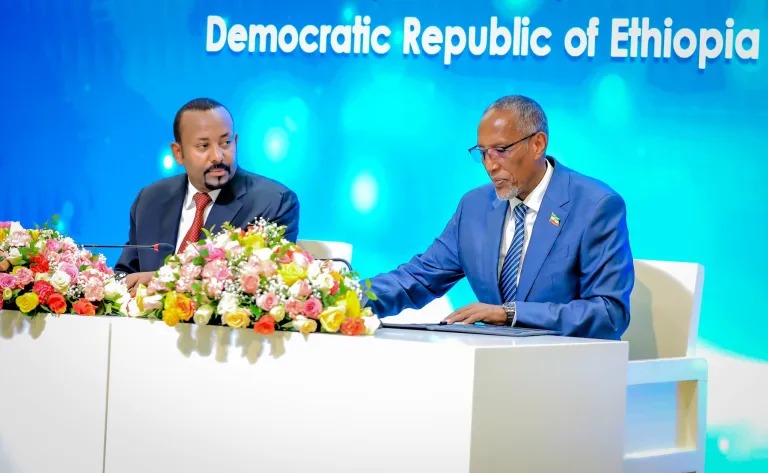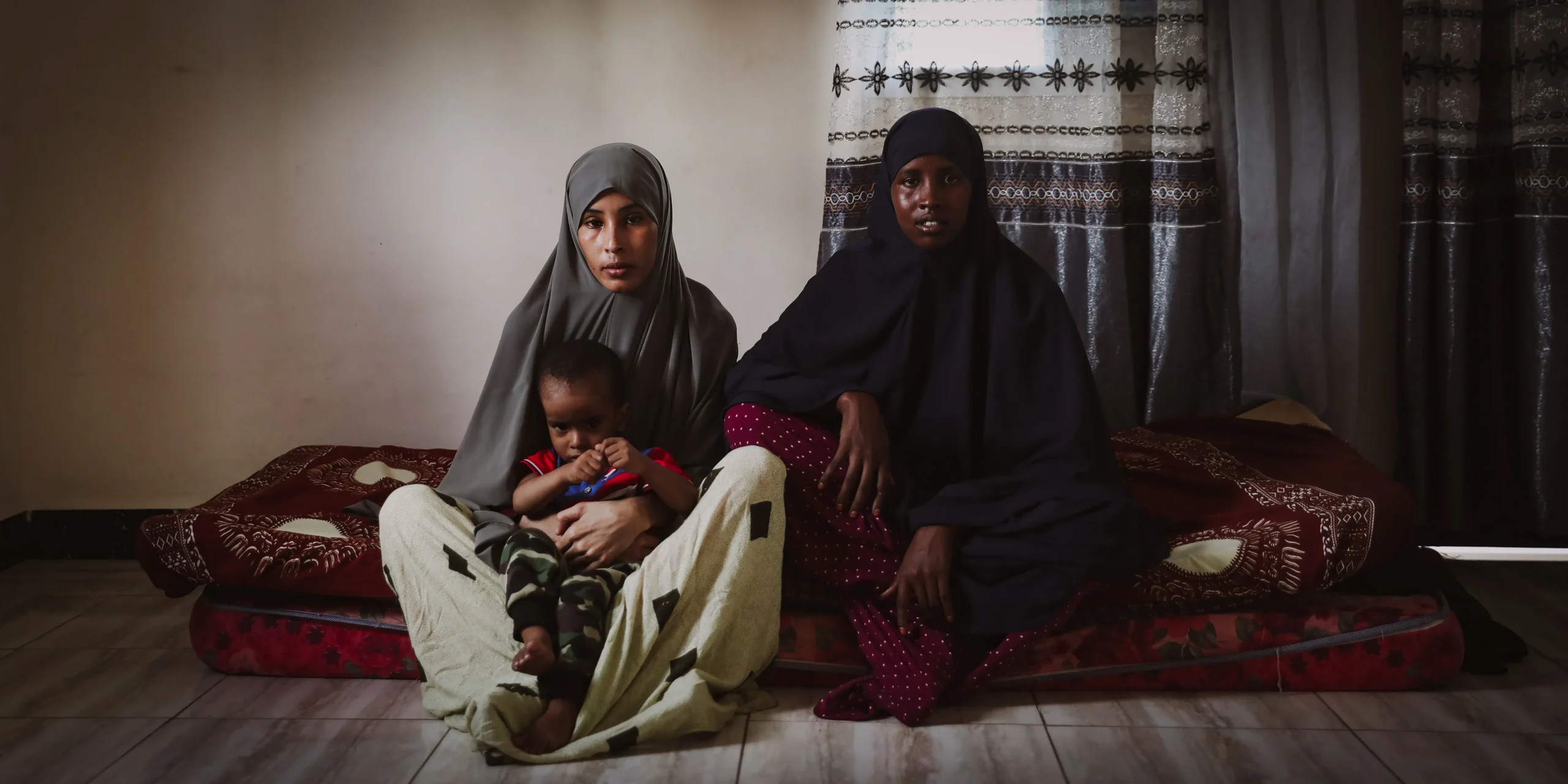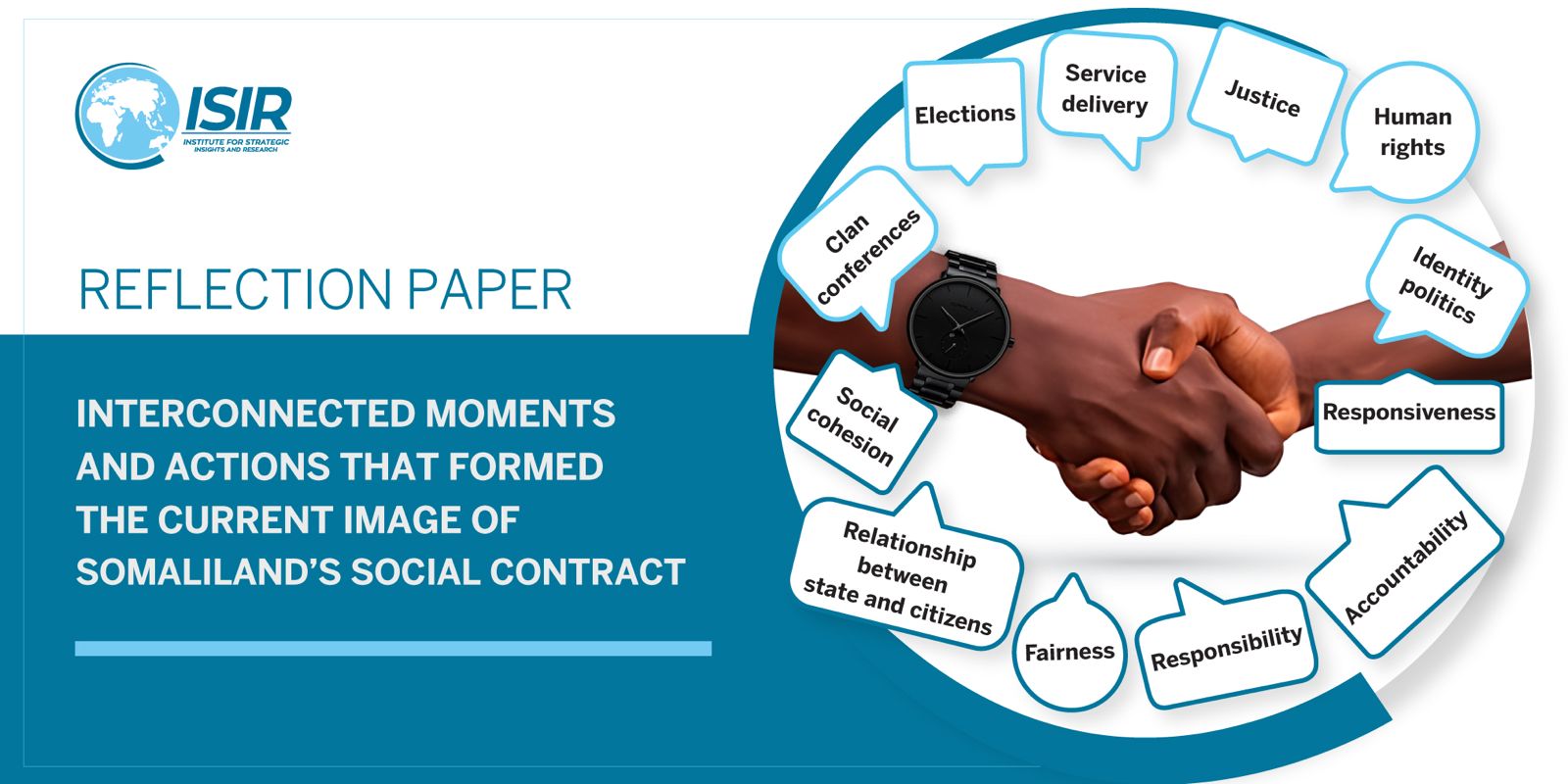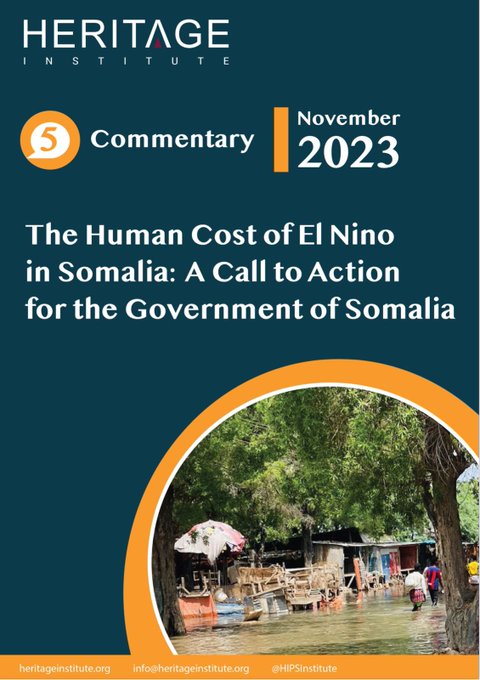By: Mohamed Abdiqafar Haji Hussein
The President of Puntland, Said Abdulahi Deni, was elected January 8, 2019 in a process to which all stakeholders agreed. The moment he was elected, the candidates running against him congratulated him. The election was not based on “one person, one vote,” but it was the system that Puntland had used since 1998, always successfully, despite minor disagreements before elections took place.
When President Deni was elected, he stated that he would implement a one person, one vote election at the end of his term. Most Puntlanders welcomed that news, thinking he would probably be the first president who would accomplish that goal. Immediately after his election he moved to implement an election based on one person, one vote. Three districts were chosen as test areas, before the rest of the districts were added.
Today, those three districts are being run by those who were elected. President Deni’s party, Kaah, even though accused of using government resources in its campaign, unexpectedly did not win. Immediately, President Deni put a stop to open elections based on one person, one vote, where individual candidates ran for city council positions, and people knew who they were voting for and what they expected the candidate to do for their city, because that is what the candidate campaigned for.
It was said that when he realized that the one person, one vote system was not something with which he could win the presidency, President Deni tried to run for the presidency of Somalia. He won the first round, but lost that election. Upon his return to Puntland, with less than two years of his term remaining, he restarted the implementing of elections based on one person, one vote.
This time around, the two people leading the election committees were removed from their posts due to disagreements and their rejection of government interference in the process. The Minister of Internal Affairs was also replaced. The new team put in place, under President Deni, was able to change the whole election process. In the first three districts, the election had been based on one person, one vote. The candidates campaigned for their positions. The constituents were able to elect the candidates they believed would fulfill the promises made during their campaigns.
The new election, planned for the other districts, has a voting system where people cast their votes for a party. The party would then submit a list of candidates ranked from, for example, first to fifth. If there are five candidates from a party running for a city council, and that party secures enough votes to win one seat, then the person ranked first on the list will be allocated that seat. The other four candidates would be unsuccessful.
The problem arises when the person ranked second on the party list, who lost in the election, believes that more people in the county would have voted for him or her. It is deemed unfair for the person ranked second to have lost the vote. In essence, the election, which has been altered from the approach used in the first three districts, cannot be considered a true “one person, one vote” system.
It has been suggested that President Deni believed his party, Kaah, could benefit from this arrangement due to the extensive use of government resources, and the fact that government officials, ranging from the Vice President, Chairman of the Parliament, Ministers, and even clerks, are members of the party. When President Deni’s plan to change the election process became apparent, eight opposition parties opposed it.
Eventually, six of those parties reached an agreement with Kaah on nine of the eleven matters they had requested. The other two matters required reopening the Puntland constitution, which is not feasible, considering the limited time remaining in President Deni’s term.
That was the situation last year. President Deni has now come to realize that after the council election on May 25, 2023, the three parties most likely to win are his party, Kaah, and two others, Mideye and Sancad, which competed against Kaah and emerged victorious in two of those first three districts. As a result, he has requested a change in the constitution, whereby the first three winning parties in the election will be the permanent top five parties.
It is worth noting that this is the same president who stated last year that the constitution cannot be altered due to the limited time remaining in his term. He now wishes to modify the constitution because he believes it will benefit Kaah. The Puntland Political Forum (PPF) held a press conference asking him to clarify his intentions following the council election on May 25. He has not yet announced what steps the government will take after the council election.
Individuals familiar with his plan have stated that he wants to assess the outcome of the election, to gauge his party’s performance. If Kaah secures a majority of votes, those acquainted with President Deni’s intentions claim he will proceed the current election system to parliamentary and presidential elections, as he is confident of winning. However, if Kaah appears to be losing the council election, he will likely seek an extension and devise another plan to ensure his party gains an advantage.
This election cannot be deemed fair, as President Deni’s actions regarding the election depend on how Kaah performs under the previous measure he has taken. However, he is placing blame on the opposition group and the PPF, accusing them of not supporting an election based on one person, one vote and being financially backed by the federal government. In reality, these groups have never said that they oppose one person, one vote. All they have requested is for the president to declare all the steps leading up to January 8, 2024, when the presidential election is due to take place.
Many Puntlanders believe President Deni gained popularity due to statements made by President Hassan Sheikh and his prime minister, who warned that if President Deni did not heed the people’s demands, Puntland may cease to exist within 24 days, after its 24-year existence. Furthermore, more Puntlanders are now supporting President Deni not necessarily because they believe he will lead them to democracy, but because they want to prove President Hassan Sheikh and Prime Minister Hamza wrong.
Last week, when Puntland forces attempted to transport election equipment from Garowe to Bossaso, it was reported that other Puntland forces, who support the opposition and perceive the election as unfair, opposed the transport. This led to fighting, resulting in two deaths and seven injuries. Traditional elders intervened and reported that they had reached an agreement with President Deni, stating that if the May 25, 2023 city council elections take place, the president is willing to meet the opposition group.
An analyst familiar with Puntland politics stated that this is not a new agreement, as it was the president’s plan all along to wait and see how his party performed. Additionally, the president did not hold a press conference to announce the agreement with the traditional elders. Furthermore, during a speech in Iskushuban town, he described the opposition as a small group that opposes the one person, one vote system. He accused them of daydreaming.
He added that if someone is dreaming, it would be better to dream while sleeping. With such an attitude, President Deni does not appear willing to reach an agreement or come to the negotiation table. The best way forward is for him to come to his senses and recognize that he was elected into a system that all stakeholders agreed upon. If that system is to be changed to one that everyone desires, including the opposition, the president must ensure that it is agreed upon by all stakeholders.
If the president attempts to dictate the process and extend his rule, he will end up in the same situation as the two other presidents, Faramajo of federal government last year and Muse Bihi of Somaliland, who took a similar path. President Deni may have briefly won over the opposition, but in the end, Puntlanders will come to realize his true colors and he will be responsible any consequence of an election which the process was not agreed upon. His proper course of action is to negotiate and to reach a compromise agreement that establishes a level playing field, giving the winner of that system a legitimate mandate to govern.
By: Mohamed Abdiqafar Haji Hussein
Email: Mohabdhus@gmail.com
Atlanta, Georgia
Categories: Opinion








